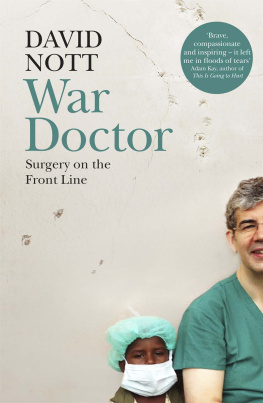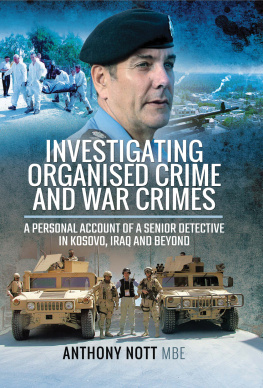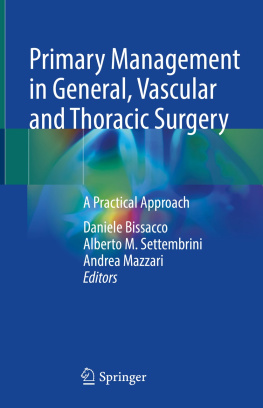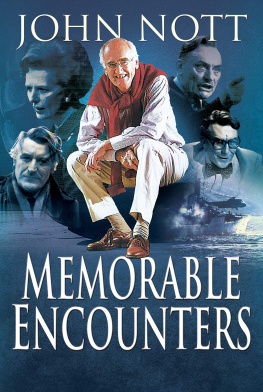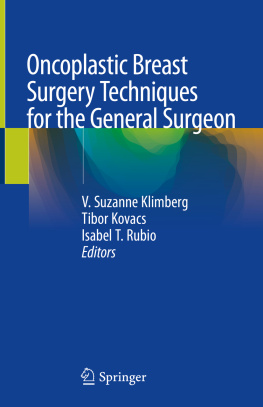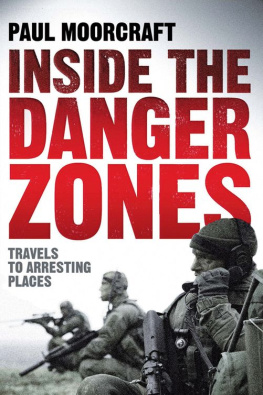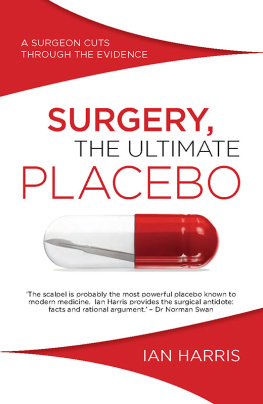Contents
DAVID NOTT
War Doctor
Surgery on the Front Line

To Elly, Molly and Elizabeth
with love.
Preface
I have travelled the world in search of trouble. It is a kind of addiction, a pull I find hard to resist. It stems partly from the desire to use my knowledge as a surgeon to help people who are experiencing the worst that humanity can throw at them, and partly from the thrill of just being in those terrible places, of living in a liminal zone where most people have neither been nor want to go.
Since time immemorial man has waged war, usually on his neighbour. As warfare became professionalized, the risk of being injured or killed on the battlefield was borne mostly by soldiers. Wars were fought as a succession of pitched battles, usually away from where people lived, and only the actual combatants were in the firing line. During the Second World War, however, this began to change, and has continued to do so until today, when the majority of casualties are innocent civilians.
As the size of the group of potential victims has grown, so the means of wounding or killing them has become ever more effective. Thankfully, destruction on the scale of the two atomic assaults visited on Japan over seventy years ago, when hundreds of thousands were killed with a single devastating weapon, has never been repeated. But instead we have multiple and increasingly powerful delivery systems for rockets, missiles, bombs and bullets, all of which are designed to inflict terrible damage on the human body. And wars most affect those who are worst equipped to deal with them: people who are poor or disenfranchised, living in inadequate or unsanitary conditions with few of the amenities we take for granted in the West. War can make an already difficult existence impossible.
There are doctors and nurses, good doctors and nurses, all over the world the desire to make medical care your lifes work seems, thank goodness, to be a pretty consistent ambition for a percentage of every population. But extreme events, whether a war or a natural disaster, stretch the boundaries of performance and what is possible. Injuries are more devastating; the windows of opportunity to intervene become shorter; resources are more scarce, or run out sooner; medical personnel are more stressed, and are often in danger themselves. Even the best-trained surgeons in peacetime will be shocked by what they see in a war zone, as I was myself; it takes time to build up the skills and experience necessary to cope with the many different challenges a trauma surgeon will face.
For reasons I will try to explore in this book, I have for over two decades now spent much of my time volunteering to go to dangerous places to help those who have been affected by events that are, very often, utterly beyond their control. I have ventured into other peoples wars many times in Afghanistan, Sierra Leone, Liberia, Chad, the Ivory Coast, the Democratic Republic of the Congo, Sudan, Iraq, Pakistan, Libya, Gaza and Syria to mention a few. Sometimes my work has been carried out in well-provisioned hospitals away from the fighting and sometimes in poorly equipped field hospitals on the front line what we call austere environments, where there are few investigatory tools such as X-ray machines or CT scanners to rely on.
Why do I keep going back to areas of pure misery and heartache? The answer is simple: to help people who, like you and I, have a right to proper care at this most precarious time of their lives.
What do we do when a little child traps her finger in a door and cries, and we are the only one there? We scoop that precious little person up into our arms. We feel the pain, we offer reassurance that everything will be OK, and we show love and tenderness the act of cuddling transmits a feeling of protection. It says, Im here now and Im going to look after you, and make you better.
That same human response is exactly what is required when you face a patient with terrible injuries in a conflict zone. That patient wants comfort and protection from what has happened. The initial doctorpatient relationship must provide that, and instil a feeling of confidence that the doctor will be able to help and do the right thing, and take away the pain of injury.
Hospitals can be emotional places at the best of times, and in war environments all sensibility is heightened. It is vital to adopt and radiate an air of confidence and strength. I am much better at that now than I used to be. However, the stakes are high because there are often weapons around, tensions are raised, and the rule of the gun overrides the rule of law. I have been in many dangerous situations and there is no doubt I am lucky to have stayed alive.
The Geneva Conventions are there to provide protection both for all those injured and to all those who provide treatment in war. In 2016 I organized a demonstration in London against the indiscriminate bombing of hospitals in Syria and in the worlds other war zones. Hospitals must be protected and respected. To bomb and destroy hospitals is not just sinful, it is evil evil because it is claimed by the perpetrators to be justifiable and intentional. In Syria there were over 450 attacks on hospitals in the first six years of the conflict there, nine out of ten of them perpetrated by the Syrian and Russian governments. In some months of the conflict there have been attacks on medical facilities practically every day. Not only is performing these acts evil so is denying that they are happening.
Organizing a public demonstration, or being interviewed on television to campaign for humanitarian corridors, or setting up a foundation to spread specialist expertise about trauma surgery these would have been impossible things for me to contemplate when I was a young consultant in the early 1990s. They are the acts of a man my younger self would not have recognized except it is still me, and we are both the product of my Welsh upbringing and all the myriad factors that shape a personality.
The campaigning and the teaching that drive me now are a function of all my experiences, but in particular my experiences in recent years in Syria. I have made three major trips there since 2012, along with other visits to the border zone, and in that period my life has changed very profoundly. I began seriously to collate and share the knowledge I had acquired over my career to help other doctors, especially doctors from countries at war. I began to get seriously angry about the inability of the major powers to prevent hospitals and medical staff being targeted in environments where they were simply trying to save lives. And, most miraculously of all, I became seriously involved with the woman who I knew I wanted to spend the rest of my life with, married her, and became a father.
I have been to other places since 2012, but Syria is the thread that runs through this most extraordinary period of my life, the seam to which I keep returning. These trips have been the most extraordinarily fulfilling, frustrating, and dangerous of all.
1
The Bomb Factory
In London the 2012 summer Olympics were in full flow, with Team GB winning a record number of medals and the country basking in the reflected glory of our athletes and a successful games. It was hard to imagine that only a few hours flight away an entire country was descending into violent anarchy.
I was busy with my day job for the National Health Service. For most of the year I work at three hospitals in London: St Marys, where I am a consultant vascular (blood vessels and circulation, from the Latin

